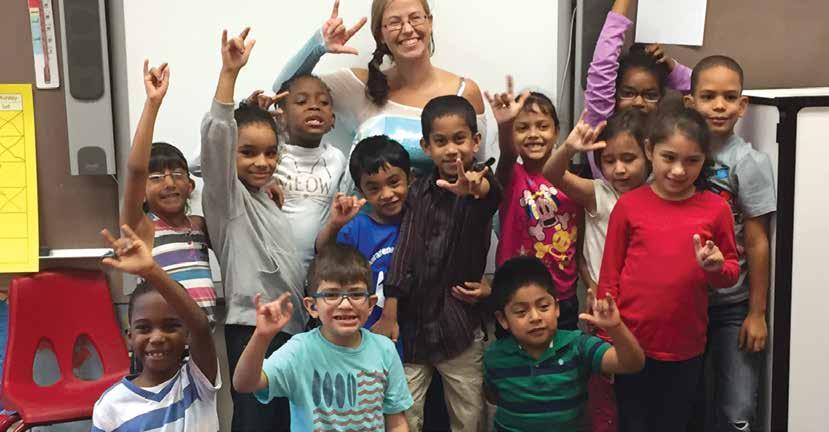
5 minute read
Education Advocates: How It All Started and Future Plans
Tawny and some students smile for the camera. Photo credit: Lexington School for the Deaf
BY TAWNY HOLMES
Advertisement
In April of 2012, the community was concerned. Due to the economic recession, nearly all schools for the deaf faced budget cuts, as high as 20% of their entire budget. That meant that the schools, already facing dwindling enrollment due to the federal policies and laws that preferred mainstreamed schooling, were at a higher risk for closure. That also meant that deaf and hard of hearing children all over the United States would have less educational options where they could succeed academically with their peers and adult role models. The community couldn’t accept that.
Education Advocates, a grassroots organizing campaign, was established by the National Association of the Deaf. The first step was to invite state associations to send a designated Education Advocate to the Biennial NAD Conference in Louisville, KY, in 2012. During that conference, there was an orientation and a list of workshops focusing on education, language needs, policy, and more that representatives were encouraged to attend. Twelve states participated and received the first Education Advocate handbook with information on their roles and the program itself. People started asking what an Education Advocate was and wanted one for their state. More states immediately joined the campaign.
For the next two years I continued to serve as a volunteer coordinator for the Education Advocates program until I got a full-time fellowship with the Equal Justice Works organization, funded by Morgan, Lewis, & Bockius, LLP., an international law firm. The fellowship during 2013-2015 meant I could work at the NAD Headquarters focusing on Education Advocacy! To meet the goals of the fellowship, I provided 5-10 trainings for parents, families, community members, teachers, administrators, and students every six months. As a result, the number of state associations with an Education Advocate grew, along with several affiliate organizations. With a growing number of Education Advocates, a webpage was established. Information about education advocacy for deaf and hard of hearing children from the NAD’s viewpoint grew and expanded in over 40 locations all over the country.
In 2014, 31 Education Advocates attended the Biennial NAD Conference in Atlanta, Georgia. Out of 31, four were national organizations: the American Society for Deaf Children (ASDC), Council de Manos, Deaf Youth USA, and National Black Deaf Advocates. As a result of the NAD’s partnership with the ASDC, a new pilot program for Parent Advocates was also established. This program allowed parents to serve as advocates, too. During this conference, there was a designated workshop track, Education Advocacy, where Education Advocates, along with other interested people could learn more about strategies, new research, and best practices in education and policy impacting deaf and hard of hearing children. An orientation was provided again, at the beginning of the conference, with an improved handbook that included an overview of laws, legislative strategies, and recommended actions. A half-day summit also occurred where Education Advocates shared a report on their accomplishments, challenges, needs, and future plans. Updates included: attending Individualized Education Plan
Family Academy for the Deaf event in Florida.

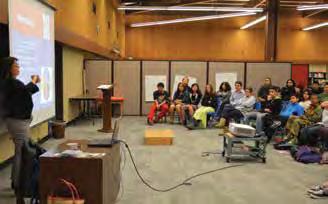
Tawny presents at the Oregon School for the Deaf.
(IEP) meetings with parents and family members of deaf and hard of hearing children, introducing and passing legislative bills, meeting with state officials, hosting workshops and events in their state or for their organization.
Between 2014-2016, the NAD was determined to meet the goal of having an Education Advocate in each of the 50 states, plus D.C. The NAD also wanted to continue outreach activities like online training, supporting state associations, networking at different education related conferences, and asking community members for referrals. By the time of the 2016 Biennial NAD Conference in Phoenix, Arizona, this goal was met! Every state and D.C. had an Education Advocate, along with more committed affiliate organizations. In addition, when parents and family members or teachers contacted the NAD, they now could be referred to their state’s Education Advocate. State associations in
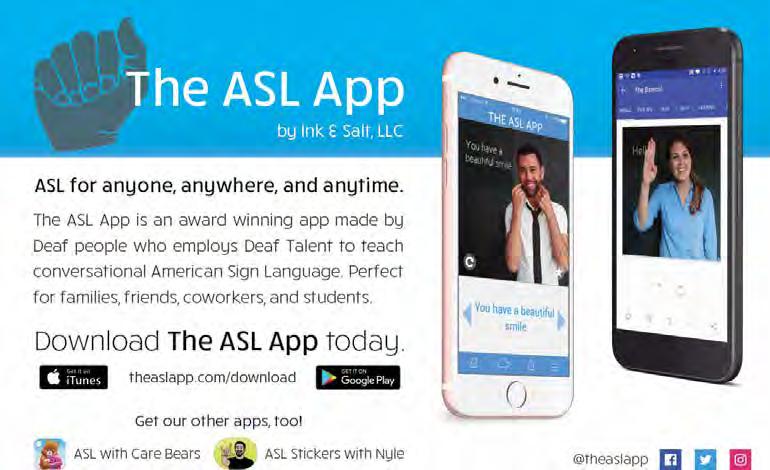
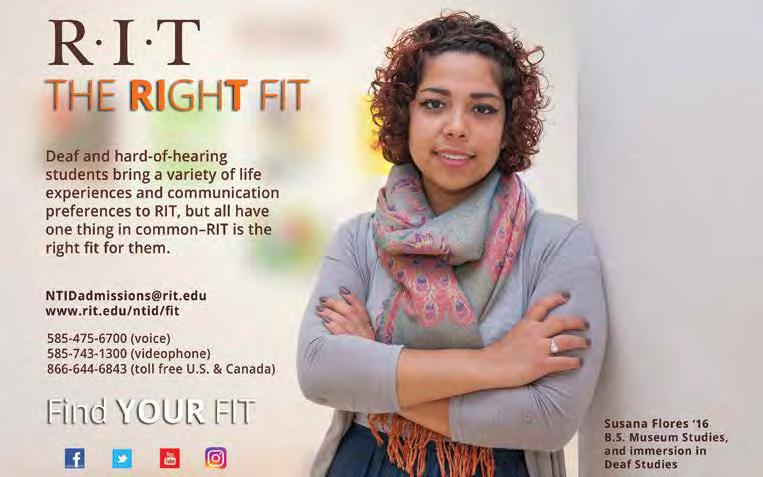
Florida, Kansas, and New Jersey also took wonderful initiatives to host workshops and events focused on supporting parents and families of deaf children, thus increasing community partnership with parents and families at the local/state level. As for national organizations, the Council de Manos and the National Black Deaf Advocates both demonstrated commitment to providing support and resources to parents and families through their conferences and strategic plans.
At the 2016 conference in Phoenix, there was another half-day summit where Education Advocates demonstrated their commitment to advocating for changes in their state or community. As for workshops, there was an entire new conference dedicated to best practices in the education of deaf and hard of hearing children—the National Deaf Education Conference (NDEC)*! The NDEC hosted the Education Advocacy track, along with other tracks, to promote and share information and resources among teachers and schools all over the nation (and the world) at each conference. There was also a state-wide stakeholders meeting with the Education Advocates, teachers, professors, administrators, and professionals from mainstream programs, public and private schools for the Deaf, and universities.
In June of 2017, NDEC held its second conference at the Indiana School for the Deaf. In October, the NAD established a new section focusing on Education. There are more positive changes to come, such as identifying an Education Advocate in the U.S. territories, expanding an online training series, converting the Education Advocate volunteer positions into full-time employment positions, working with state agencies/offices serving the deaf, and collaborating with the Parent Training Information Centers funded by the U.S. Department of Education.
Children doing an activity at a Parent Advocacy event.
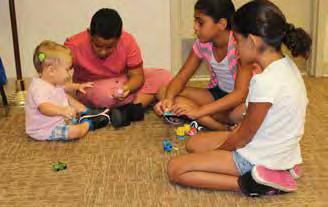
If you are interested in becoming an Education Advocate, contact your state association or affiliate organization to share your interest. To find out who is your state or organization’s current Education Advocate, check www.nad.org/ educationadvocates. Education Advocates serve a two-year term that coincides with Biennial NAD Conferences. Education Advocates are expected to have a background and expertise in deaf education. With Education Advocates, we now are able to show accountability and involvement to benefit deaf and hard of hearing children at every level of our community!
Tawny Holmes is the Education Policy Counsel at the NAD.
For more information about NDEC, go to www.deafeducation.us.








